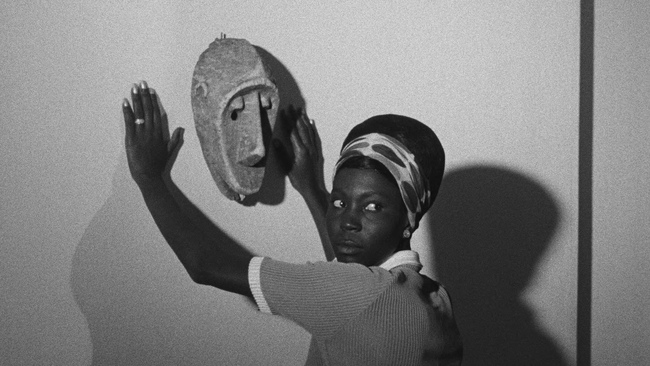“Senegalese director Ousmane Sembène is known as the father of African cinema, and this movie was his international breakthrough. His filmmaking grew out of his own experiences about racism and modern forms of slavery, and often, as is the case here, it centered on the plight of women. Black Girl may be rough at the edges, but that only gives more life to this low-budget movie about a girl who is desperately trying to survive in the poverty-stricken city of Dakar. When this film was made the country of Senegal had gained its independence from France, but was struggling with economic collapse. Diouana is ecstatic when she is hired by a French woman as a maid, and eventually brought to France to work as a sort of domestic helper… but in reality her existence is more like a new form of colonialism. In Europe the violence and poverty are no longer physical, but become psychological and spiritual. This is a simple, disturbing, compelling film that is iconic for being one of the first films to reveal the treatment of migrant workers in Western countries. This drama is about the shattering of Diouana’s dreams. In France, racism is no longer heavy-handed, but is ingrained into the fabric of everyday life.
Ousmane Sembène worked in the harbor of Marseilles in the 1950s. He started writing about his experiences and knocked out an autobiographical novel called Le Docker Noire,that dealt with Europe’s cultural and economic racism. Then in the 1960s, he wanted to make movies, so he applied at the film school in Paris. Of course, he was rejected, but he was undeterred, and just traveled on to Russia to attend film school in Moscow where he was easily accepted! So in the 60s he went on to make films, and they had the same sharp vision and determination as his writings. On his return to Senegal, at the age of 40, he started shooting movies with a second-hand 16mm camera and some film stock that had been given to him by a friend.”
In French with English subtitles
In this short film by
Claire Denis a triangle of people meet during a train journey. Real-life philosopher
Jean-Luc Nancy
is on hand, exploring his theory of the immigrant-stranger-intruder. A lot of ideas are thrown around in this discussion, but perhaps the physical interaction between the three people says more than dialogue ever could.
With Alex Descas, Jean-Luc Nancy, and Ana Samardzija”
